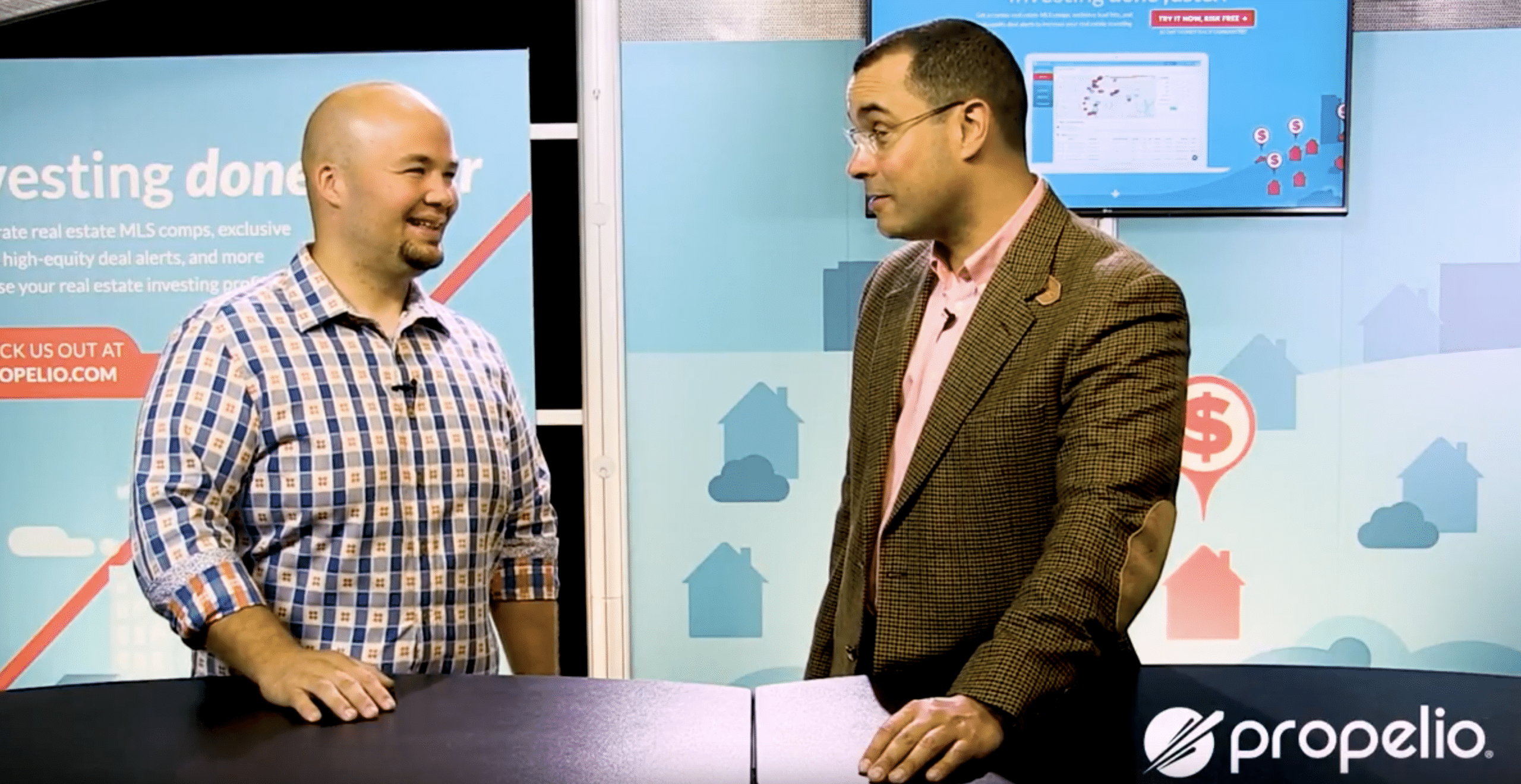Daniel Moore speaks to Real Estate tax attorney John Hyre and what he can do for Real Estate investors as an accountant and an attorney, operating as www.iralawyer.com
Real Estate Tax Attorney
John Hyre begins started out working in corporate jobs for the first seven years when he came out of law school and has been practicing for about 21 years now. John saw a niche with Real Estate investors, in particular small- to medium-sized companies. This insight grew to aid anything up to companies with a net worth of 8 figures.
Hyre explains his Real Estate tax attorney business involves almost all of his clients are Real Estate investors.
Hyre realized this small community was important to focus on because he saw that unless someone is a really big real estate investor, it was hard to find good quality help with business structure and tax advice. The market was filled with generalist CPA’s, generalist lawyers,but no one did specialized tax help.
Self-Directed IRA
Hyre says that one of the critical details of his Real Estate tax attorney business is working on structuring Real Estate investors as self-directed IRA’s. John Hyre is one of the few people in the country who has taken self-directed IRA’s to tax court more than once. He offers unparalleled insight into self-directed IRA’s.
Hyre continues to explain that these self-directed IRA niches work with a lot of different types of businesses. However, one of the problems he encounters with Real Estate investors is that they act like landlords and they are cheap .
John Hyre offers specialist advice above that provided by the custodian, (which most investors rely on) but with a deeper understanding of the regulations and the vast potential of the upside of self-directed IRA’s.
Hyre shows the tax savings a typical Real Estate investor can make. The details are as follows:
- Start with $100,000.
- Flip one house every year for ten years.
- Reinvest for 110 years at 12% return.
- After 20 years, show figures around $4,000,000 compared to $1,000,000.
“That’s a $300,000-a-year difference, solely from tax-free investing, solely from using your IRA’s”
John Hyre speaks about the mistakes that a lot of Real Estate investors make if they attempt to do a self-directed IRA under bad guidance.Hyre explains the dangers of prohibited transactions, the potential for your HSA, your Coverdell educational, or your savings account all being able to enter into a prohibited transaction as they can be self-directed.
If this happens, the account dies on the spot and the money gets distributed, leaving the government about half. These are expensive mistakes which Real Estate investors can make if they’re not careful.
Self-Directed 401K
John Hyre continues this interesting discussion by talking about self-directed 401K’s. He says most people don’t realize they’re eligible for a self-directed 401K, or could easily restructure their business to be eligible for this lower tax status. Most small businesses don’t realize they’re probably eligible, or could be eligible, if they were willing to structure it a little.
John details an example of how a Real Estate investor who was into rentals could save on tax.
As rentals produce passive income, it’s not considered “earned income”. To contribute to a 401K and to have a private 401K plan, you have to have “earned income”.
So what does that mean? You might pay yourself a management fee, you might flip a few properties, that’s all “earned income”. More W-12 style income, you’ve got to have some of that. That’s just an example of one of the requirements necessary to have a self-directed 401K.
Daniel Moore sums it up nicely by saying,
“Bringing in people like you has really strengthened and helped my business.”
Moore asks John Hyre about his Real Estate investment projects. Hyre outlines his interests in low-income rentals because of the cash flow.
Hyre talks about his success investing in mobile home parks and low-income single-family homes and duplexes. He explains that some of these properties are inside his 401K’s and IRA’s, and some are outside.
He is planning to sell everything which is outside of the 401K or IRA structure because they don’t want to pay the tax. As John concludes,
“I’m not going to touch that money, I’m just going to reinvest it. Why pay tax?”
John continues about his success with Real Estate investing in mobile homes. The model works because he can buy mobile homes cheap and move them pretty cheap. Hyre likes to sell the mobile home, not own it.
Mobile Home Parks – Cash Flow
Hyre uses mobile home parks to generate cash flow; one of the requirements for operating a business as a self-directed IRA. To finish filling his parks, the team walk through other parks, chat with people and find who wants to move their home.
They sometimes subsidize the move, willing to pay up to six months allotment rent. It’s a smart way of creating passive income, as it is an easy way to fill the park up. You can also pick who comes in and make sure they have equity in their home. This way John Hyre’s business doesn’t have to get involved in the financing of the mobile home.
Legal Advice on Owner Financing
Hyre explains that he had to change his model due to a change in the law on raising taxes – passing the SAFE act in 2010, and then Dodd Frank.
New regulations make it difficult between the licensing and the requirements which can add risk. You could become a felon if you screw it up!
Real Estate investors are advised to seek the correct legal advice before attempting more complex strategies. There are many owner-financing businesses who have enough scale to show a great success, but contracts need to be water tight.
Operating as Dealer Status
Daniel Moore and John Hyre continue to discuss Real Estate tax accounting, moving onto the subject of dealer status. John explains that dealer status is simple: if you buy and sell enough properties, you are eligible.
There’s no set number for the inventory, it is a gut feel based on how much work you do, how long you’ve been doing it, and other things. There are 450+ cases on this, some of which contradict each other. If you read them, you can get a sense of who is a dealer and who is not.
John explains that dealer status means you don’t get capital gains reliefs, you pay ordinary income which is a higher bracket, you don’t qualify to apply depreciation, you cannot sell on the installment sales method, all which severely limits a Real Estate investors potential.
If you’re selling investment properties on payments – meaning something you hold for production of income, like low-income rent, or hold for appreciation, the government lets you pay the tax over time.
Dealers who did the same thing would be treated like they sold the property for cash. John Hyre talks about techniques he has for dealers who sell on payments and think they have to pay the full amount of tax up front.
Hyre’s Real Estate business is not set up like a dealer as they don’t sell enough houses to class as dealer status. Hyre’s business stabilizes property, rents it out, holds the asset, and collects the rent as monthly cash flow. He claims to have a strong legal argument that it is an investment property and not a dealer property.
Combined Real Estate Accounting & Legal Advice
The conversation continues, with John Hyne talking about how he is a Real Estate tax attorney and an accountant. He says that often a CPA and a lawyer will contradict each other regarding the best structure for the business entity in order to qualify for as little tax as possible.
John Hyre’s company synthesizes and adds the third aspect of practical advice. He says there’s a lot of tax advice that might save you on taxes but makes no sense pertaining business.
Hyre says he has clients ranging from new Real Estate entrepreneurs up to organizations with 8 figures of net worth. He explains how his company offers a package they have for new Real Estate investors which involves a consultation and entity planning.
Hyre also addresses the other end of the scale. He says some very large holdings require very sophisticated planning. Hyre speaks on drafting complex operating agreements for tax advantage to be able to include, for example, IRA investors, 401K investors, to do a “carried interest”- meaning you can get paid at capital gains rates instead of at an ordinary rate.
A Tax Attorney, Fluent in Real Estate
Hyre’s experience in the Real Estate industry means he has worked on all types of property deal- including investor terms like subject-to, lease option, assignment, rehab and retail, net leases, tax lien certificates, selling on paper, and selling partials. Daniel Moore agrees, “one of my biggest struggles when starting out was finding the right tax attorney, finding the right CPA”.
Since the federal tax law is the same everywhere, Hyre is able to provide his consultancy service to clients all over the United States from his office in Ohio. As he says, most of his client base is not nearby.
It is actually very rare for someone to come into the office. If you call in, you might catch them a little casual. Flip flops and shorts sometimes. Why? Because they can.
Puerto Rico
Hyre switches things up and addresses the excellent opportunities for Real Estate investors to live and base themselves in Puerto Rico.
John Hyre explains that he can qualify for a big tax break if he sets up a sea corporation, employing five residents of Puerto Rico. This means somebody who lives there more than 183 days of the year. The sea corporation would entitle John to get taxed at a flat 4% rate.
Almost anywhere in the world the US government follows you and your taxes. Puerto Rico is one of the few places in the world where US income taxation does not apply.
Hyre’s work in self-directed IRA’s could be run through Puerto Rico; therefore, non-taxable. His US Real Estate will still be taxed in the US, and then taxed again in Puerto Rico. Hyre claims that when he did the math, this restructuring would be worth six figures to him every year.
A Pay Raise to Move to the Beach?
John says that moving to Puerto Rico would be worth at least $100,000 a year. The best thing? They’ve got 150 beaches!
He says the conditions are right to attract Real Estate investors with HUD deals where they have access to the first bid. He is exploring upper-end properties in foreclosure and thinking about moving in.
Hyre explains that you have got to live in there for a year, and every investor can only buy and owner-auction one HUD, first-come bid, every two years.
A Real Estate investor had the correct setup for with a classic portfolio for a self-directed IRA, with a passive income from “not rent”, interest dividends, and capital gains. Restructuring in Puerto Rico would work well for a hard money lender to get 4% tax rate on interest, capital gains, and dividends. It works for any kind of location independent service business.
Owner-Financing in the US from Puerto Rico
If a Real Estate investor had an owner-financing business, they would have significant benefits by relocating their operation to Puerto Rico. A Real Estate business which has interest income could work well in Puerto Rico.
Some things would still need to be considered. For instance, if they lend the money to a private investor, they would classify the transaction according to where the note was located.
In Real Estate, terms can be a little gray according to what is considered the “site”. John Hyre talks about discovering Puerto Rico on a networking cruise which stopped in San Juan. After seeing the raw natural beauty of the island, John began looking into Puerto Rican tax laws.
Hyre talks further about Latin culture, joking about the notorious chaos associated with dysfunctional bureaucratic systems. He does round off this section about Puerto Rico by highlighting the favorable structures they allow for businesses which would suit many modern Real Estate investors.
John gives the overall picture of the Puerto Rican dream: a 20-year contract that is worth $100,000 a year.
Bookkeeping & Structure for Real Estate Investors
Daniel Moore and John Hyre come back to the simple basics of a small- to medium-sized Real Estate business.
Hyre focuses on the planning side, teaching investors how to do bookkeeping as they are notoriously disorganized. He teaches Real Estate investors how to set up entities, going through their whole structure. Butler looks at their books and records, their future plans, their prior returns, and working together on their vision, strategy, and tactics of going forward.
More advanced Real Estate investors can expect John Hyne’s company to review their structure, go through returns, books, entities, and IRA’s, giving strategies on how to save money.
John continues further talking about representing clients in tax court. So far, the IRS has not litigated a case against him to the end.
John gives an example where they took two self-directed IRA cases to tax court, which very few have ever done. He knows how the IRS works. He knows how they audit. He knows what they look for. He knows the questions they ask. He knows how they think, and he knows where they’re going.
Propelio’s YouTube channel and Facebook have more interviews with Real Estate entrepreneurs and educational videos which give you all the tools you need in your belt to be a successful investor.
























